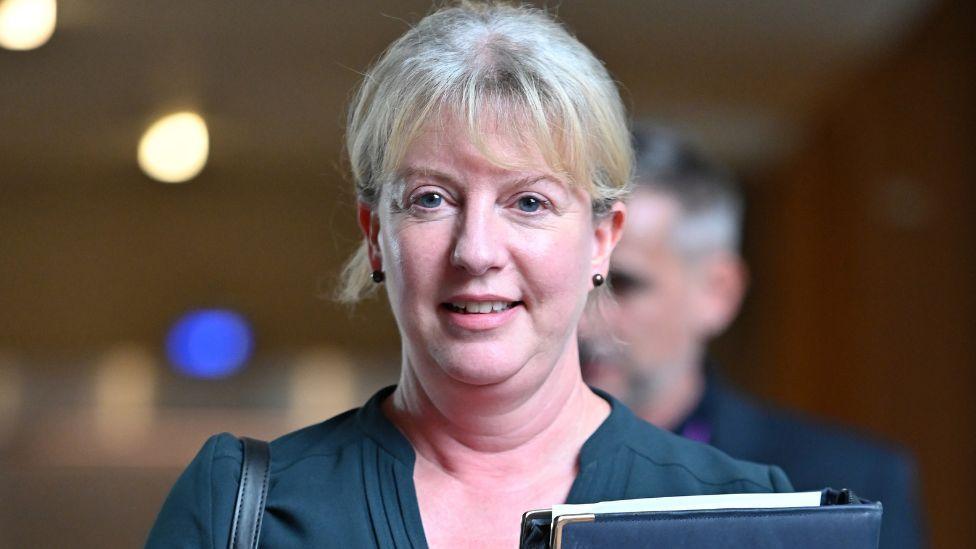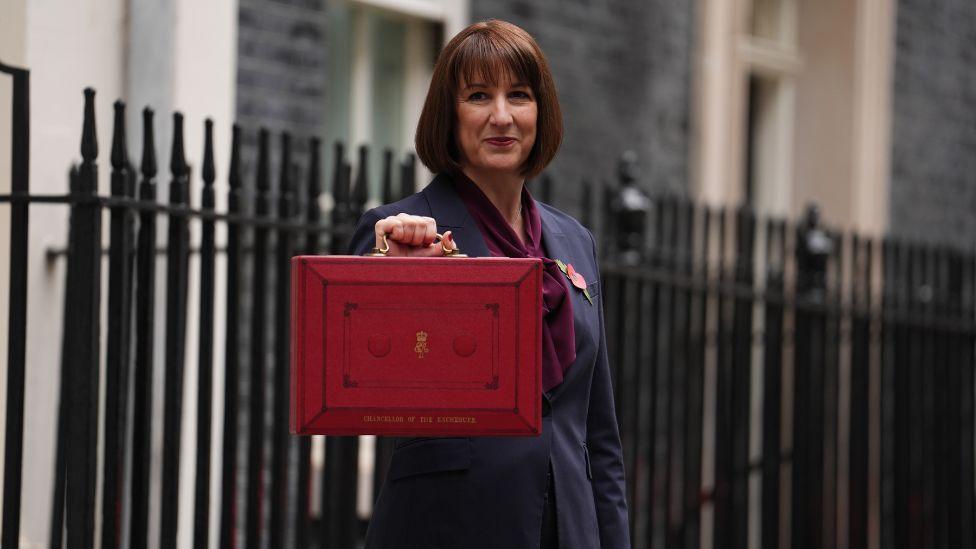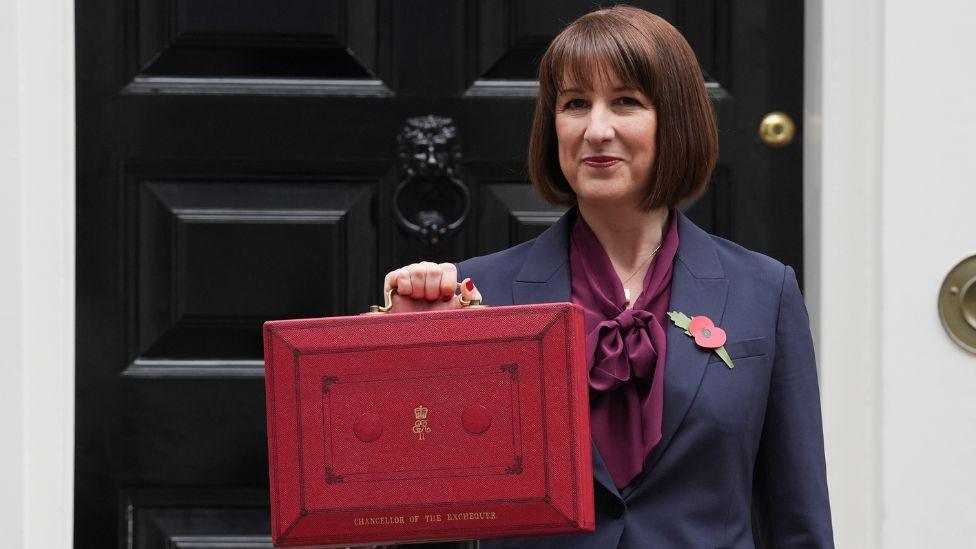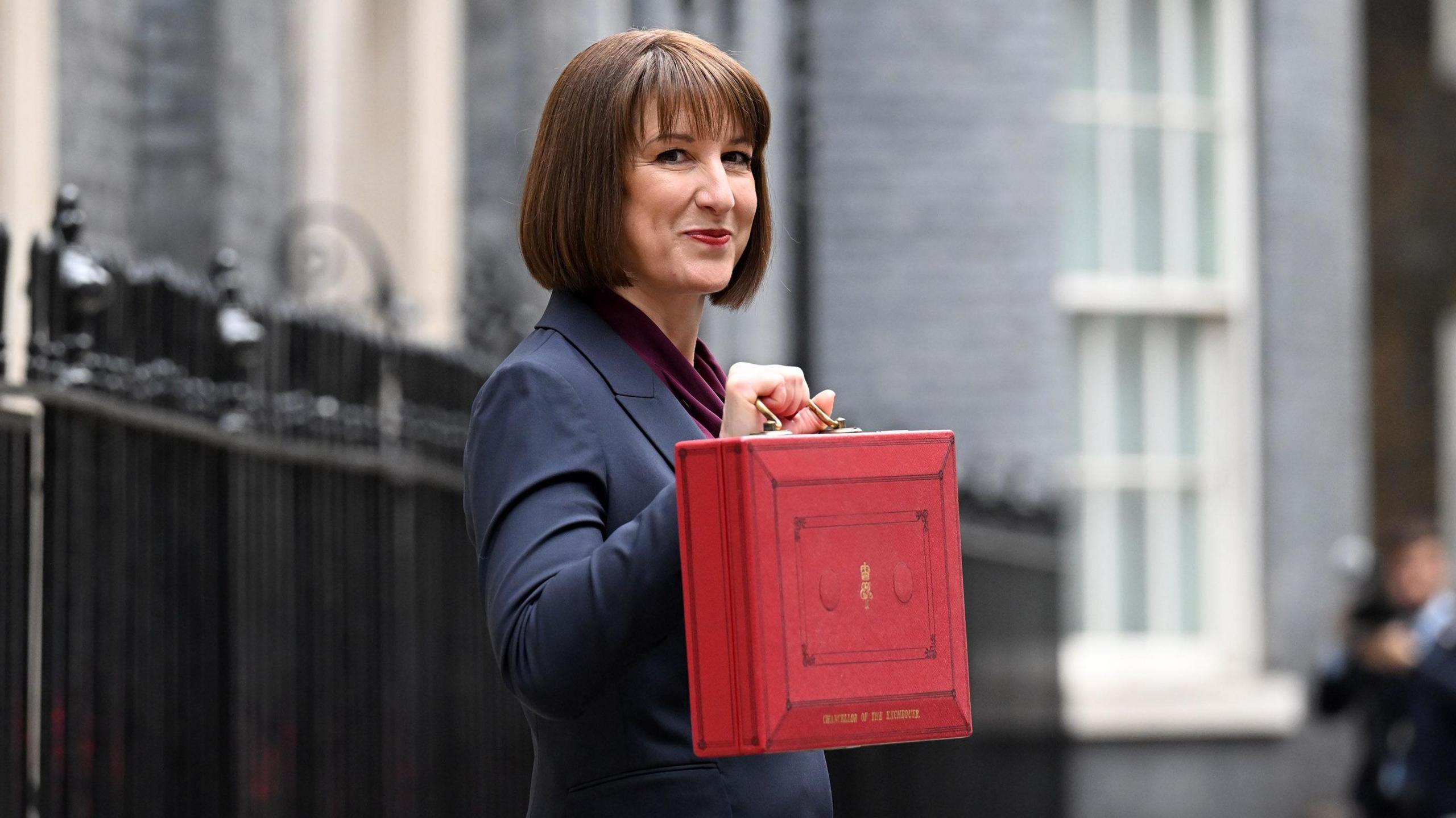Treasury must compensate Scotland for tax hike - Robison

Scottish Finance Secretary Shona Robison says an increase in employers' National Insurance could cost her government £500m
- Published
The Scottish government has demanded that it is fully compensated by the Treasury for a hike in National Insurance for public sector employers.
Finance Secretary Shona Robison said the tax increase announced in the UK autumn Budget could cost the SNP administration £500m.
Chancellor Rachel Reeves seemed to suggest £3.4bn in additional funding for Scotland in 2025-26 did not include compensation as she urged Holyrood ministers to spend the money "wisely".
However, the UK government said that extra funds would be provided on top of the £3.4bn to make up for the extra staff costs.
The Scottish government is also set to receive an additional £1.5bn for this financial year, 2024-25 - though it said this was in line with its budget expectations.
Making her first budget announcement as chancellor, Reeves said employers are to pay National Insurance on workers’ earnings above £5,000 from April, down from £9,100 currently, with the rate increasing from 13.8% to 15%.
That could have a particularly big financial impact for the Scottish government, which funds a proportionally larger public sector workforce than in the UK as a whole.
'Urgent clarity'
Robison told BBC Radio's Good Morning Scotland that the tax hike could cost the Scottish government up to £500m.
“Because the Scottish public sector is larger, we need to see that fully covered," she added.
“We will be seeking urgent clarity on that.”
About 600,000 people are employed in Scotland’s public sector, making up 22% of the total workforce – compared to about 17% in the UK as a whole.
That has fuelled concerns at Holyrood that Scotland could be short changed if compensation for the National Insurance increase is not proportional to its public sector.
Despite the additional funding, Robison said "austerity will continue for those impacted by the two-child cap, and also the loss of the winter fuel payment".
But the finance secretary stressed there would be no “bonanza” on mitigating Westminster policies as she refused to commit to spending extra cash to mitigate the two-child benefit cap or to restore the universal winter fuel payment for pensioners.
She added: "Let's be clear, the money we have received is largely for the NHS and for frontline public services. This does not give us a huge area of headroom to spend on other things.”

Rachel Reeves has called on the Scottish government to use the extra funds "wisely"
Earlier, Reeves was asked about concerns that the tax increase could cost the Scottish government £500m.
She told Good Morning Scotland: "We've given £3.4bn in the settlement to Scotland, which takes into account all of those pressures.
"The challenge now for the SNP in Scotland is to use that money wisely."
The chancellor said the Budget provided the biggest settlement for Holyrood in the history of devolution.
She added: "The Scottish government now need to deliver."
'Difficult decisions'
Defending her decision to raise taxes, Reeves said: "We had to make difficult decisions to raise the money so that we could reduce NHS waiting lists, so that we could build the homes that our country needs, so that we could give the settlement to Scotland yesterday."
A UK government spokesperson said the Treasury would provide funding to support the public sector with the additional costs.
They said the £3.4bn figure did not include the additional support.
The spokesperson added: “We will work through the implications for the devolved governments budgets at official level.”
It is understood that of the £3.4bn settlement for 2025-26, £2.8bn is for day-to-day spending.
The Scottish government is due to announce its budget for the next financial year on 4 December.
The Fraser of Allander Institute, an independent think tank, said the UK Budget was “likely to make the Scottish government’s job of balancing its budget significantly easier" thanks to a £1.5bn increase in funding in 2024-25.
However, First Minister John Swinney said the increase in this financial year “largely accords with our expectations in our internal planning”.
He said it would be used to meet the cost of public sector pay deals and the impact of inflation.
Swinney said the Scottish government did not expect to have “any new capacity” for spending in 2024-25.
It has already made £500m of cuts from its budget for this financial year.
During First Minister’s Questions, Scottish Conservative leader Russell Findlay said Labour had “chosen to hammer workers and declare war on business” and criticised Robison for describing the budget as a “step in the right direction”.

Labour delivered a budget with a big uplift in cash for the devolved Scottish government, blunting SNP concerns about the likelihood of continued austerity.
Then the new UK government got themselves into an unnecessary guddle over the detail.
When Chancellor Rachel Reeves was asked if her £3.4bn package for Scotland next year would be topped up to offset the impact of increased employers’ National Insurance contributions on public services, she suggested that had already been taken into account.
However, the Scottish Secretary Ian Murray and the Scottish government had publicly said they expected further Treasury funding to deal with this.
It seems they and not the Chancellor were correct, according to a clarification from the UK government.
The questions now are whether the Scottish government will know the details before it sets its 2025-26 budget and whether the extra cash will “fully” offset the impact of higher national insurance costs on NHS Scotland and other devolved public services.
- Published30 October 2024

- Published31 October 2024
